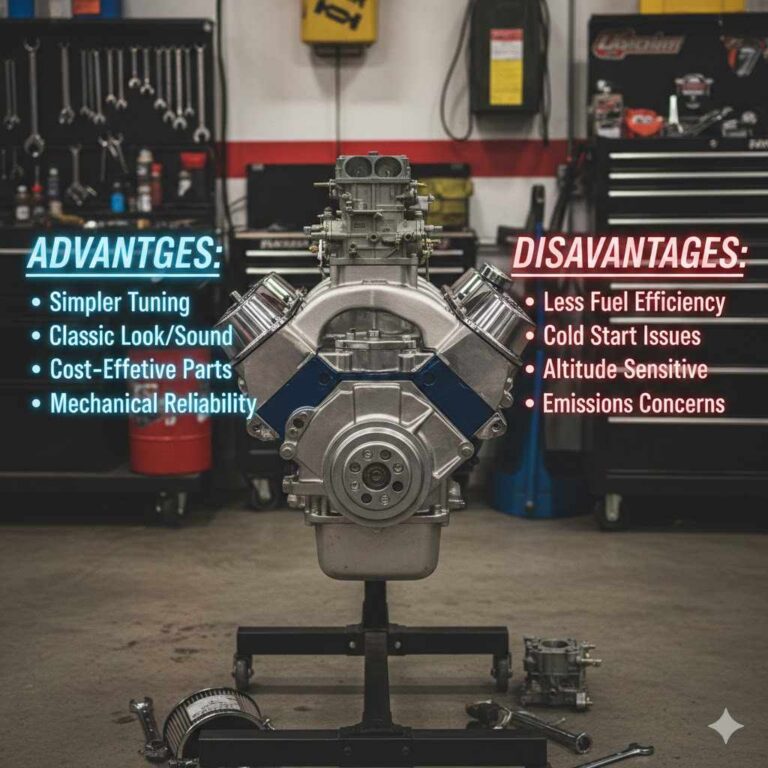Can a Car Overheat from Idling Too Long? Discover the Risks!
Yes, a car can overheat from idling too long. Here’s why: When a car is left running for an extended period without moving, the engine doesn’t receive enough airflow and the cooling system may not function properly.
This can lead to a rise in temperature, causing the car to overheat. An overheating engine can be a serious issue, potentially resulting in engine damage if not addressed promptly. We will explore the reasons why a car overheats from idling, the signs of overheating to watch out for, and preventive measures to avoid such circumstances.
By understanding the causes and taking proactive steps, you can ensure the longevity and optimal performance of your vehicle.
What Causes A Car To Overheat?
A car can overheat from idling too long due to factors like a malfunctioning cooling system, low coolant levels, a faulty thermostat, or a blocked radiator. These issues can lead to poor heat dissipation, causing the engine temperature to rise and ultimately resulting in overheating.
Insufficient Cooling System
When it comes to understanding why a car can overheat, one of the key factors to consider is an insufficient cooling system. The cooling system in a car is responsible for keeping the engine temperature at an optimal level. If the cooling system is not functioning properly, it can lead to an overheated engine. There are several reasons why the cooling system may be insufficient, including:
- Blocked or clogged radiator: A radiator that is blocked or clogged with debris can hinder the flow of coolant, resulting in inadequate cooling.
- Damaged water pump: The water pump is responsible for circulating the coolant throughout the engine. If the water pump is damaged or malfunctioning, it can lead to insufficient coolant circulation and an overheated engine.
- Thermostat issues: The thermostat regulates the flow of coolant through the engine. If it is stuck closed or open, it can disrupt the cooling system’s operation and cause overheating.
Low Coolant Levels
Another common cause of a car overheating is low coolant levels. Coolant, also known as antifreeze, plays a crucial role in maintaining the engine’s temperature. If the coolant levels are too low, there may not be enough liquid to effectively cool the engine, resulting in overheating. Low coolant levels can be caused by various factors, such as:
- Coolant leaks: Any leakage in the cooling system can result in reduced coolant levels. Leaks can occur in the radiator, hoses, water pump, or even the engine itself.
- Inadequate coolant mixture: Coolant should be mixed with water in the recommended ratio. If the mixture is incorrect, such as too much water or too little coolant, it can lead to reduced cooling efficiency and potentially result in overheating.
Malfunctioning Or Damaged Cooling Fans
The cooling fans are responsible for pulling air through the radiator to help dissipate heat from the engine. If the cooling fans are malfunctioning or damaged, they may not be able to provide sufficient airflow, leading to overheating. Some common issues with cooling fans include:
- Electrical problems: If there is a fault in the electrical system controlling the cooling fans, they may not turn on or operate at the correct speed, resulting in inadequate cooling.
- Fan blade damage: Physical damage to the fan blades, such as cracks or breaks, can hinder their ability to generate enough airflow to cool the engine.
- Fan relay or switch failure: A malfunctioning fan relay or switch can prevent the cooling fans from engaging, leading to overheating.
In conclusion, a car can overheat due to various reasons including an insufficient cooling system, low coolant levels, and malfunctioning or damaged cooling fans. Understanding these potential causes can help car owners identify and address problems early, ensuring their vehicle stays cool and runs smoothly.
The Risks Of Overheating
When it comes to car maintenance, one important aspect often overlooked is the risk of overheating. Many drivers may assume that idling their car for long periods of time is harmless, but in reality, it can lead to various risks and issues. In this blog post, we will delve into three key areas that highlight the risks of overheating: engine damage, safety hazards, and increased fuel consumption.
Engine Damage
Extended idling can take a toll on your car’s engine. As the engine runs, it generates heat. When the car is in motion, this heat is dispersed efficiently through the radiator. However, when the car is idling, the engine may not cool down as effectively, leading to a buildup of heat. Over time, this can cause serious engine damage, such as:
- Blown head gasket: The head gasket is responsible for creating a seal between the engine block and cylinder head. Prolonged overheating can cause the head gasket to fail, resulting in coolant leaks and potential engine damage.
- Warped or cracked cylinder head: Excessive heat can cause the cylinder head to warp or crack, leading to oil leaks or loss of compression.
- Seized engine: In severe cases, overheating can cause the engine to seize up completely, rendering the car inoperable and necessitating costly repairs.
Safety Hazards
Idling too long can also pose safety hazards to both you and your car. Here are a few risks to keep in mind:
- Fire hazard: Overheating increases the risk of a fire in your car’s engine compartment. This can be particularly dangerous if you are parked close to flammable materials or in an enclosed space.
- Brake failure: Some cars rely on vacuum-assisted brakes that depend on the engine running. Prolonged idling can cause a loss of vacuum pressure and lead to reduced braking capabilities.
- Electrical system issues: Continuous idling can put a strain on your car’s electrical system, possibly causing problems with the battery or alternator.
Increased Fuel Consumption
One additional concern with idling for too long is the increased fuel consumption. A car at idle consumes fuel without covering any distance, leading to unnecessary wastage. Leaving your car idling for extended periods not only puts a dent in your wallet by burning fuel but also contributes to environmental pollution. To maximize fuel efficiency and reduce emissions, it’s best to avoid excessive idling whenever possible.
Preventing Overheating
Preventing your car from overheating is crucial for maintaining its performance and longevity. Whether you’re stuck in traffic or simply waiting for someone, extended idling can lead to overheating if you’re not careful. By following a few simple steps, you can ensure your car stays cool and running smoothly. Let’s explore some effective methods to prevent overheating and keep your car in top condition.
Regular Maintenance And Inspection
Regular maintenance and inspection of your car’s cooling system is essential to prevent overheating. This includes checking coolant levels, hoses, and the radiator for any signs of wear or leakage. With proper maintenance, you can catch any potential issues early on and address them before they become major problems. Remember, a well-maintained cooling system is the key to preventing overheating.
Avoiding Extended Idling
Avoiding extended idling is another effective way to prevent your car from overheating. When your car is idling for too long, the cooling system doesn’t receive enough airflow to keep the engine at a stable temperature. It’s best to turn off the engine if you anticipate being stationary for more than a minute. By avoiding unnecessary idling, you can reduce the risk of overheating and prolong the life of your car’s cooling system.
Using Coolant And Water In Correct Ratios
Using the right ratio of coolant and water in your car’s cooling system is crucial to prevent overheating. Coolant helps regulate the engine’s temperature and provides antifreeze protection during cold weather. It’s important to follow the manufacturer’s recommendations and mix the coolant with water according to the specified ratios. Using too much water or not enough coolant can impact the cooling system’s efficiency, leading to overheating. Be sure to check and maintain the correct coolant-to-water ratio for optimal performance.
Conclusion
Excessive idling can indeed lead to a car overheating, causing potential damage to the engine. It is important to be aware of the risks and take preventative measures, such as keeping an eye on the temperature gauge, regularly checking coolant levels, and not leaving the car idling for extended periods of time.
By taking these precautions, you can help maintain the longevity and performance of your vehicle. Stay informed and keep your car running smoothly.







